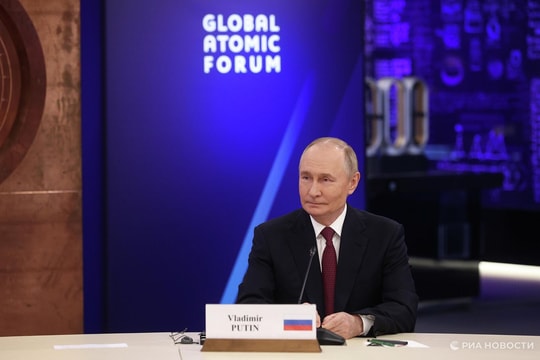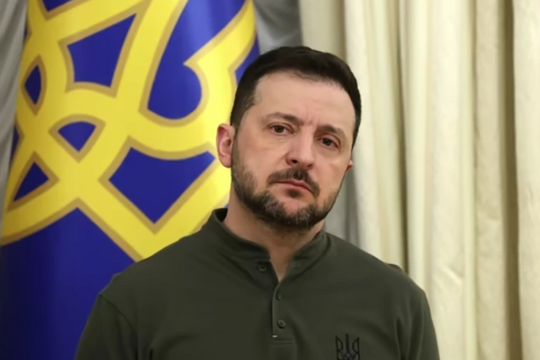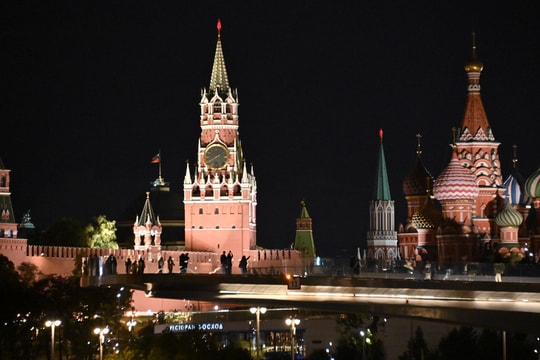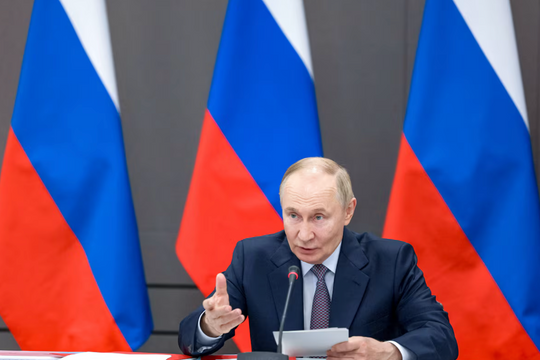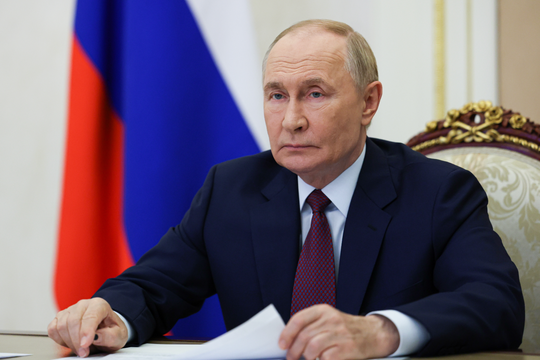Russia uses gas as a powerful tool to pressure the EU in the Ukraine conflict
The EU has been enthusiastically supporting Ukraine and obstructing Russia’s efforts in this war. However, Russia has cleverly used gas weapons as a powerful political tool to suppress the EU and draw the EU to its side.
Russia's upper hand in the gas sector
Russia is using its dominance of the European oil and gas market, where Russian oil and gas products account for 40% of the European Union's (EU) gas consumption, to undermine EU support for Ukraine.
Increasing that pressure ahead of winter, Russia shut off the Nord Stream 1 gas pipeline to Germany from August 31 to September 3, citing maintenance, but possibly in an attempt to gain concessions from the EU in its sanctions against Russia.
 |
| A worker checks equipment at a compressor station at the starting point of the Nord Stream 2 gas pipeline, in Russia. Photo: TASS. |
Meanwhile, British Finance Minister Nadhim Zahawi is scheduled to meet US Treasury Secretary Janet Yellen on August 31 to ask the US to boost energy exports to ease the energy crisis in Europe.
As gas prices have risen, Russia has been playing hardball by flaring gas instead of selling it to the EU via European pipelines. A Russian gas plant near the Finnish border, for example, has been burning an estimated $10 million worth of natural gas every day since August 27.
This amount of natural gas burned is equivalent to 0.5% of the EU's daily gas demand. This may not sound like much, but in the context of the world in general and Europe in particular facing a severe gas shortage, stopping the supply to the EU even with such a small amount would exacerbate the crisis.
Russia had previously reduced the amount of gas flowing through Nord Stream 1 to 20% of its capacity by June 2022, which Russian state-owned energy company Gazprom said was due to faulty or missing equipment.
Russia’s dominance of gas supplies to the EU is its biggest economic weapon. There are fears that Russia will turn off the gas tap altogether. On August 30, Russian gas giant Gazprom cited a contractual issue when it cut off gas supplies to France. The same happened to Poland and Bulgaria in April 2022. And recently, Gazprom announced it would turn off Nord Stream 1 indefinitely.
EU struggles to cope
Russia has also demanded that all payments be made in rubles, using this as justification for cutting off gas supplies. Meanwhile, EU countries and the UK are scrambling to find alternative energy sources for the coming winter, and move away from dependence on Russia.
European countries are desperate to fill their reserves to cope with the coming winter.
Germany appears to have filled 80% of its oil and gas reserves, but it is unclear whether other European countries have done the same.
Many European countries are scrambling to find other solutions. Bulgaria has said it will renegotiate a gas deal with Russia, while Hungary has already started talks with Russia.
Liz Truss, the candidate for the leadership of the British Conservative Party, said that if she becomes British Prime Minister, the country will drill for more oil in the North Sea.
If the coming winter is really cold, the old divisions within the EU could return, and the competition between EU countries for energy supplies could fracture the EU and its alliances.
Russia’s economy has long been based on the extraction and export of natural resources. According to the World Bank, natural resources accounted for 46% of Russia’s GDP (gross domestic product) in 2020. Oil and gas accounted for nearly half of that figure, while metals, chemicals, and food products made up the rest. According to figures provided by Statista, oil and gas accounted for 21.7% of Russia’s GDP in the first three months of 2022 – the highest share of oil and gas in Russia’s GDP since 2017.
However, the impact of Western sanctions on Russia, even if they do work, will take longer than some hope. The idea that the Russian economy will collapse in a matter of weeks is unrealistic.
Russia has tried soft measures.
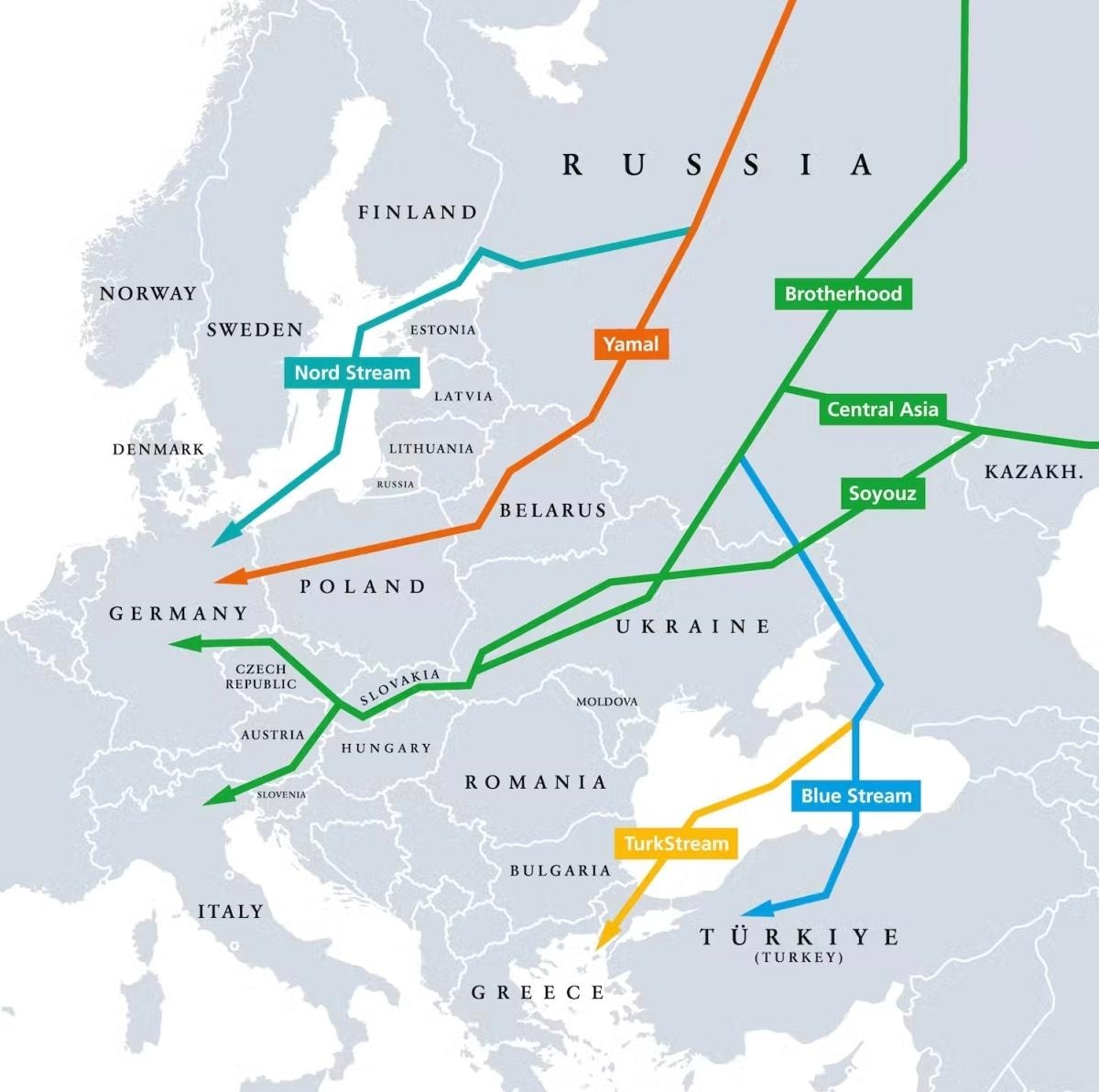 |
Russian gas pipeline system leading to Europe. Photo: Alamy. |
After the Orange Revolution in Ukraine in 2014, the pro-Russian government collapsed. Russia then turned to other techniques to pressure countries like Ukraine to pull them to its side.
Through the promotion of culture, ideals and values (commonly known as soft power), a country can persuade others to follow its path. Russia has attempted to implement these soft power tactics in the post-Soviet region with varying degrees of success.
But in the end, to make other countries see Russia as a great power, promoting culture was not enough. Russia had to use hard power.
Russia's tough tactics
Ultimately, Russia has relied on either military force, as in Georgia in 2008, or economic pressure. At various times, Russia has used economic weapons, such as banning Moldovan wine or Georgian Borjomi mineral water, both in 2013, to sway these countries to a pro-Russian line.
However, it is gas that has always been Russia’s main economic weapon against the EU and its neighbors, with the gas wars of 2006 and 2009 being prime examples.
In 2006, when Ukraine failed to pay its gas bill, Russia cut off the pressure on the gas pipelines to Ukraine and reduced supplies. This had a negative impact on the EU economies at the time and showed the fragility of relying on Russia. In 2009, the same scenario was repeated.
Russia has systematically used gas as a weapon, reducing natural gas shipments to Europe, thereby forcing European politicians to behave more “reasonably” toward it. Logistical obstacles have made it difficult for the EU to wean itself off its dependence on Russia for oil and gas. And Russia continues to exert influence in this way.
The Russian government believes it can reduce Western support for Ukraine by limiting gas supplies and creating a recession in the EU economy.
The Kremlin is hoping that the coming cold winter and rising energy bills will deter European voters from supporting Ukraine as they themselves become increasingly preoccupied with domestic issues and their own bread and butter. In fact, pro-Russian voices have emerged within the EU, convincing EU voters that the war in Ukraine is not worth their support./.

